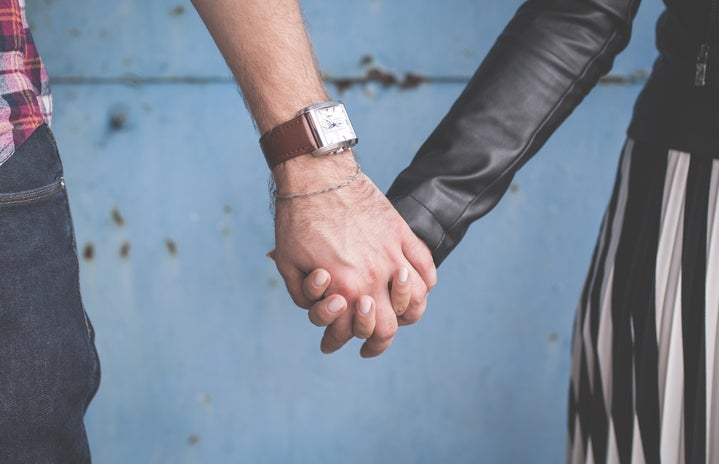Edited by: Lavanya Goswami
Last month, I began re-watching the iconic early 2000s show and my favorite comfort show — ‘Gilmore Girls’. I originally watched it when I was just entering high school, so I was around 14 years old. At this point in time, the idea of the mysterious, brooding, bad boy was particularly enticing to me, which is why I found myself to be a huge fan of Rory’s second boyfriend, Jess. He was the epitome of this trope. He seemed so troubled and aloof, and Rory was the good girl that could help him find a softness within himself.
Upon rewatching this show with a more mature mindset — one that values respect and effective communication in relationships — Jess seems to me, a walking, talking red flag. However, this isn’t a unanimous opinion among fans of the show. Many adore Jess and claim that he was the best boyfriend for Rory. This intrigued me and I wanted to explore why so many women are attracted to these kinds of men, because this isn’t just the case with Jess. In fact, the trope with the angry, toxic male who behaves disrespectfully towards anyone that isn’t his girlfriend is a very common and beloved one.
There’s something about the feeling that you’re the only person in the world that your significant other cares about, that is exhilarating; but it’s actually a glaring red flag. If they mistreat everyone else and pay very little attention to anyone but themselves, the bar for their behaviour is very low. All they really need to do is give you their time of day, for it to feel euphoric. Not only that, it also indicates that they probably put you up on a pedestal, above everyone else. This is dangerous because as a normal person, you’re bound to slip up and act like, well — a normal person rather than the ideal they’ve created in their minds, which might cause them to get upset. If mishandled, this could drastically affect one’s self-image. Such relationships also thrive on keeping you wanting more. You want the validation that they’re not giving you, so when it comes in spurts, it feels that much more euphoric. If it were there from the start, you wouldn’t be clinging onto it, and therefore by extension, you wouldn’t be clinging onto them.
Several women also have a saviour complex with such men. They believe that they can change them because they’ve seen a side of their partner that nobody else has. I believe this stems from the patriarchal notion that women must play a nurturing role and take on the endeavour to raise their boyfriend out of their emotionally unavailable selves. We’re socialised into thinking that we have to play the role of a caregiver and heal broken men of their damage. This is incredibly damaging, as we feel it alright to put aside our own emotional needs to help someone who can’t help themselves. It’s unfair to impose that burden on ourselves.
Jess Mariano is the most accurate PG representation of this kind of man. He disrespected everyone in town, including Rory’s mother, who was the most important person in her life. He didn’t show any interest or care for anything that was important to Rory. The few times that he did participate, it was to make his presence known to Rory’s ex-boyfriend, whom he felt threatened by. He kept her waiting for him all evening without making concrete plans, expecting her to just be available as and when he pleases. He completely disregarded the fact that she has a life beyond him, and it’s not like all this was lost on Rory. She got angry with him several times for his behaviour. So why then, do so many people still adore Jess?
The media romanticizes this idea of men, a lot. They cast attractive actors to play these roles and paint them in a light where they are either portrayed as a victim or as endearing, for having these qualities. This happens when men write female characters and their love interests. There is a heavy male bias in the media with female voices often subdued or even shut down. The entire genre of romance, although targeted at women, is heavily dominated by male writers and directors, who can twist the narrative to benefit them.
I’m not entirely sure what to make of all this. I just hope that we will, more often than not, learn to choose ourselves and put ourselves first. The trend certainly seems to be moving in that direction.

